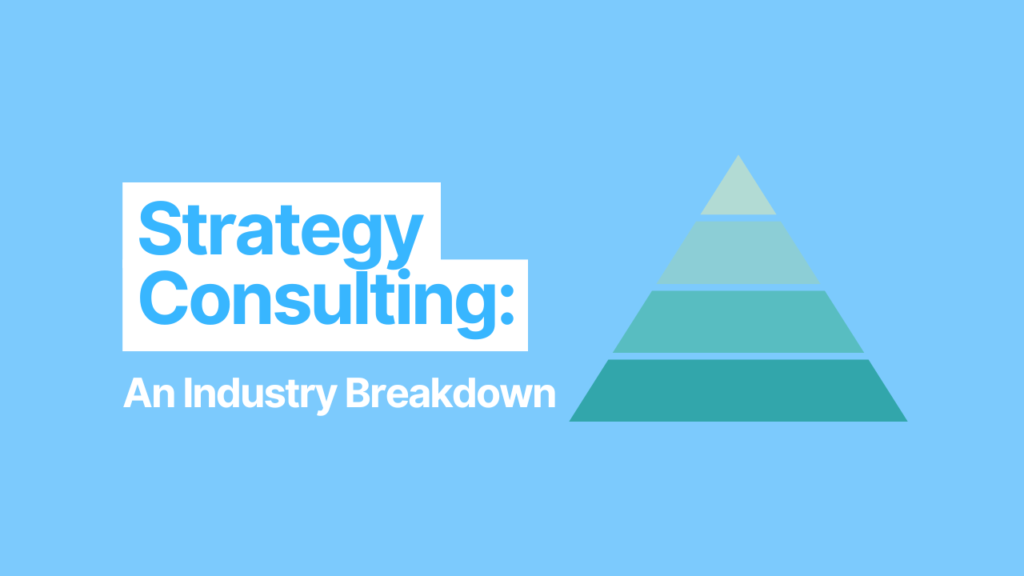
So you want to break into Investment Banking? Before landing the role, you will have to go through the rigorous process of an investment banking interview. Investment Banks are notoriously known for their challenging and competitive interview process.
But rest assured, in this article we’ll cover the most common interview questions asked in Investment Banking Interviews to help you prepare.
What is Investment Banking?
Let’s start with the basics—what exactly is investment banking? Investment banking is a type of financial service that helps companies and governments raise capital by issuing securities, such as stocks and bonds. Investment banks also provide clients with financial advisory services, such as mergers and acquisitions. These services are crucial for businesses to grow, expand, and make strategic financial decisions. In simple terms, investment banks act as intermediaries between investors and companies, helping them achieve their financial goals.
Some well-known examples of investment banks include Goldman Sachs, JPMorgan Chase, Morgan Stanley, and Citigroup. These institutions offer clients a wide range of services globally and are considered the top players in the field of investment banking.
Types of roles in Investment Banking
Before we move on to the interview questions, it’s essential to understand the different types of front-office roles in investment banking. Knowing this will help you tailor your preparation according to the specific position you’re applying for. Some common roles include:
- Analyst: This is an entry-level position where you will work on financial analysis, creating presentations, and conducting market research.
- Associate: This role is one step above the analyst. Associates typically have three to four years of experience and are responsible for managing projects and client relationships.
- Vice President: This is a mid-level position, and VPs are responsible for driving business development and managing client relationships. They also oversee associates and analysts.
- Managing Director: This is the highest position in investment banking management. A managing director oversees the entire investment banking division and is responsible for setting and driving the strategic direction of the business. Their major focus is on building and maintaining relationships with major clients. This role typically requires extensive experience in investment banking and exceptional leadership skills.
Besides from these primary roles, there are various other positions in investment banking, such as sales, trading, research, compliance, and operations. Each of these roles has unique responsibilities and requirements, so it’s essential to understand the specific position you’re interviewing for. This way, you can showcase your relevant skills and experience during the interview.
By the way, understanding the different roles in investment banking will also give you a better understanding of the overall functioning of an investment bank.
How you can prepare for an Investment Banking Interview
Now that you have a general idea of investment banking and its different roles let’s move on to the most crucial part—how to prepare for an investment banking interview. As mentioned earlier, these interviews can be challenging, and preparation is vital. First, you should understand that there are generally two types of interview questions in an investment banking interview—behavioural and technical.
Behavioural Questions
Behavioural questions assess your soft skills, such as communication, teamwork, leadership, and problem-solving abilities. They are meant to give the interviewer a sense of who you are as a person and how well you would fit in with the company’s culture. Some examples of behavioural questions include:
- Tell me about yourself. This is usually the first question asked in an interview and your chance to make a good first impression. Prepare a concise, impactful answer highlighting your relevant skills, experience, and achievements.
- What motivates you to seek employment at X company? The interviewer wants to know your motivation for applying to this particular company. Do your research about the company and come up with a genuine answer that showcases your interest in the organisation.
- Recall an instance where you needed to perform in a high-pressure situation. This question assesses your ability to handle stressful situations, which is crucial in investment banking. Prepare examples from your past experiences and highlight how you effectively managed pressure.
- Describe an example where you successfully resolved a disagreement between team members. This question evaluates your teamwork and conflict resolution skills, both essential qualities in investment banking. Again, prepare specific examples that showcase your ability to handle conflicts effectively.
Technical Questions
Technical questions assess your knowledge of financial concepts, valuation techniques, and industry trends. These questions require in-depth knowledge and preparation, so make sure you have a strong understanding of the fundamentals. This is where your finance and accounting knowledge will come in handy. Some examples of technical questions include:
- How would you describe the concept of “debt capital”? This question is to test your understanding of basic financial concepts. Be prepared to explain the meaning of debt capital and give examples.
- How do you value a company? This question evaluates your knowledge of valuation techniques such as discounted cash flow, comparable companies analysis, and precedent transactions. Make sure you have a thorough understanding of these methods.
- What are some recent industry trends in the technology sector? This question assesses your awareness of current events and their impact on the market. Keep up with the latest industry news and trends to answer this question confidently.
- How do you calculate a company’s weighted average cost of capital (WACC)? This question tests your understanding of financial analysis and calculation skills. Brush up on your knowledge of the WACC formula and be prepared to show how you would apply it in a real-life scenario.
Tips for a Successful Investment Banking Interview
In addition to preparing for the specific types of questions mentioned above, here are some general tips to help you ace your investment banking interview:
- Research the company and industry: Be familiar with the company’s history, recent deals, and major industry trends. This will demonstrate your interest and knowledge in the industry.
- Practice mock interviews: Practice with a friend or mentor to get comfortable answering interview questions and receive constructive feedback. This will also help you improve your communication skills and confidence.
- Dress professionally: Investment banking interviews usually have a formal dress code, so make sure to dress appropriately. Maintaining a polished appearance demonstrates your serious approach to the interview.
- Be confident: Remember that the interviewer is also trying to assess if you would be a good fit for the company. Be confident and showcase your skills and achievements confidently.
- Be honest: Don’t exaggerate or lie about your experience or knowledge. If you don’t know the answer to a question, it’s better to admit it and show a willingness to learn. Integrity is highly valued in the finance industry.
- Follow up: After the interview, send a thank you email to your interviewer expressing your gratitude for their time and reiterating your interest in the position. Adopting this approach will distinguish you from other applicants, fostering a favourable impression.
Conclusion
Investment banking interviews can be challenging, but you can ace them with proper preparation and a positive attitude. Remember to research the company, practice for both behavioral and technical questions, and demonstrate confidence and honesty during the interview. With these tips in mind, you are on your way to a successful investment banking career!
FAQs – Frequently Asked Questions
How much do I need to know about the financial markets?
Understanding the financial markets is crucial for anyone looking to enter the investment banking industry. Candidates are expected to be up to date with current market trends, key financial news, and how macroeconomic factors affect the markets.
Can you explain the importance of ‘fit’ questions in investment banking interviews?
‘Fit’ questions assess whether a candidate’s personality, values, and work ethic align with the company’s culture. These questions are as important as technical questions because investment banks look for individuals who can seamlessly integrate into their teams and contribute to the company’s success.
What level of technical skills is required?
Candidates should possess a strong foundation in finance, accounting, and valuation methodologies. The depth of technical knowledge required can vary depending on the role, but a clear understanding of financial modeling, mergers and acquisitions, and capital markets is generally expected.
How can I demonstrate my interest in investment banking during the interview?
Demonstrate your interest by discussing recent deals or market trends, showing your understanding of the industry’s challenges and opportunities, and highlighting your relevant skills and experiences. A genuine enthusiasm for finance and a clear motivation for choosing investment banking as a career path will underline your interest.
What are the best ways to prepare for a case study or modeling test?
Preparation should include practicing with financial modeling exercises, understanding case studies, and being familiar with creating valuations under time constraints. Resources such as online courses, investment banking prep books, and mock sessions can be invaluable for honing your skills.






